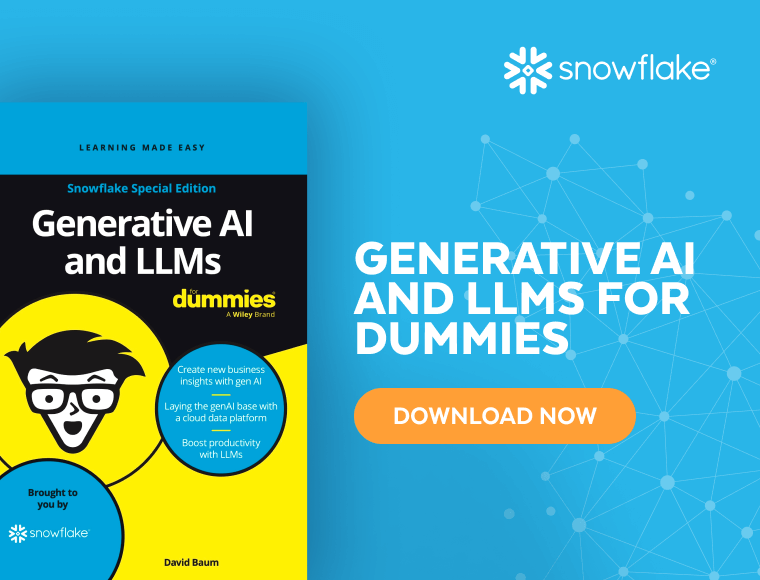AI in Business Intelligence
Business intelligence (BI) is an engine for powering strategic decision-making — providing organizations with technology and processes for collecting, organizing, analyzing and visualizing their data in a systematic way. Integrating artificial intelligence (AI) into BI workflows enhances effectiveness, revealing insights that might otherwise go undetected. This article explores the growing importance of AI in business intelligence, and how organizations are applying it to solve complex business problems, boost efficiency and maintain a competitive edge.
How AI Benefits Business Intelligence
AI has fundamentally changed business intelligence. AI can learn and adapt independently, and make complex connections, providing a number of advantages for business intelligence activities.
Analytics on larger, more diverse data sets
AI makes more data accessible for business intelligence activities, including images, videos, audio files, information gathered from IoT devices, and unstructured text data from survey responses, online reviews and social media activity. With more data, organizations have a fuller picture of the business question at hand.
Faster complex analysis
AI can tease out patterns and insights in large, multidimensional data sets with unmatched speed and precision. AI systems use parallel processing, the practice of breaking down a larger workload into smaller parts that can be completed simultaneously. Specialized processors called GPUs execute technical calculations much faster than standard processors, providing opportunities to integrate real-time data sources into business intelligence systems.
Adaptive performance capabilities
AI models can learn and adapt without explicit programming, allowing them to continuously improve their accuracy. By introducing AI into business intelligence practices, organizations can build systems that increase the value they deliver the longer they remain in use.
Proactive decision-making with predictive insights
AI-enabled predictive models combine historical data with current performance indicators to forecast future outcomes such as sales and demand for new and existing products or services. AI enhances the speed and accuracy of these forecasts, allowing organizations to put plans in place to meet future demand and innovate new offerings that align with market trends.
7 Applications of AI in Business Intelligence
AI technologies have sparked a wave of innovation in business intelligence. Organizations across industries are leveraging AI to deliver tangible value in a range of business intelligence use cases.
Managing risks and opportunities
Competitive intelligence helps businesses monitor and react to the risks and opportunities presented by their competitors. AI can continuously monitor competitor actions such as new product launches, marketing campaigns, pricing and customer sentiment. Using this information, businesses can identify potential gaps and opportunities to compete more effectively.
Detecting inefficiencies and prescribing solutions
A digital twin is a virtual replica of a real-world process or system. AI-generated digital twins are fed with live-streamed data to create a digital reproduction of physical assets such as assembly lines, buildings and more. One example comes from the energy industry, which is using AI to create a digital twin of solar and wind farms so engineers can test solar panels and wind turbines in a range of conditions. By running prescriptive analytics on the digital twin, AI can prescribe adjustments for improving the efficiency of each unit.
Intelligent process automation
AI excels at automating repetitive, manual processes. Intelligent process automation combines AI with related technologies to boost efficiency and reduce the time and resources required to complete routine tasks. Document intelligence, an AI-enabled technology used for extracting insights and data from unstructured documents, can be used to automate many document-intensive business use cases. Mortgage underwriting is one example. Using this technology, lenders can extract information from mortgage applications and supporting documentation. This eliminates time-intensive manual processes, reduces opportunities for human error and accelerates the underwriting process.
Supply chain management
AI-enabled business intelligence solutions can quickly detect anomalies or outliers in supply chain data, helping decision-makers take corrective actions before risk is realized. For example, analyzing alternative data sources such as satellite imagery and geolocation data can help manufacturers detect bottlenecks and anticipate delivery issues before they snarl production timelines. This same technology can be used to improve demand forecasting, inventory optimization, logistics coordination and other supply chain processes.
Fraud detection
Detecting fraud is a flagship use case for AI in business intelligence. Advanced machine learning models leverage historical and real-time data to spot anomalous patterns in transactions, claims and other business data. AI-enabled fraud detection solutions are equipped with progressive learning algorithms that enable them to learn and adapt independently. As they encounter more new data, they grow increasingly accurate.
Conversational BI interfaces
AI methods such as natural language processing enable nontechnical teams to ask questions and interact with business intelligence data using natural language. This technology eliminates the need for familiarity with specialized query language to maximize the value of BI systems, allowing stakeholders to quickly access the data most relevant to their needs.
Better understanding of customers
AI systems can bring together data from numerous customer data sources, including customer relationship management systems, customer loyalty programs, social listening tools and customer service logs. This data can be analyzed to produce hyperpersonalized product recommendations, content suggestions and marketing campaigns targeted at the individual level.
Build a Stronger AI-Enabled Business Intelligence Program with Snowflake
The Snowflake AI Data Cloud provides you with the data infrastructure and ML development capabilities required to build AI applications and run AI-enabled business intelligence solutions. Snowflake takes the complexity out of artificial intelligence workflows, allowing you to quickly build features, train models and deploy them into production — all using familiar Python syntax and without having to move or copy data outside its governance boundary. Build and run your AI-enabled business intelligence solutions with Snowflake.
